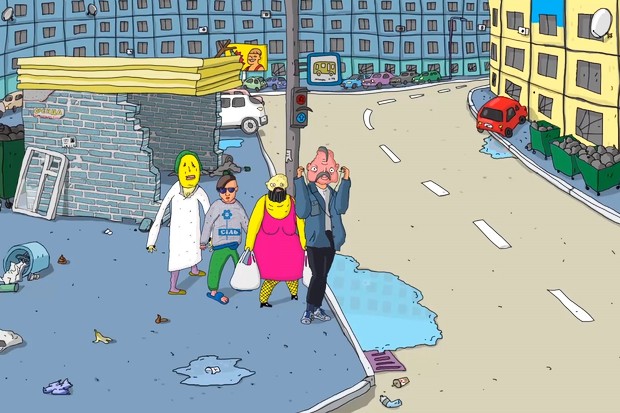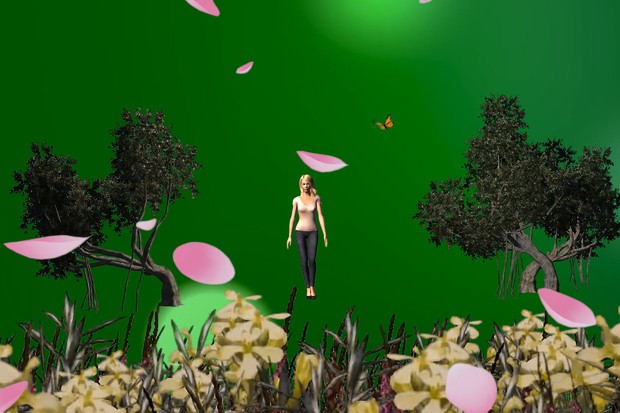GoCritic! Feature: Utopias - World Ended, What Next?
- Utopias and whether it’s too late for them was the main focus of Fest Anča 2023, with the first block of films opening up the debate with markedly stimulating eclecticism

"I want to capture the full breadth of ‘utopia’. Social themes as well as highly introspective stories appear in the programme selections. That's why the entire section is called ‘Utopias’ and not just ‘Utopia’. This year’s festival focus encourages the audience not to be afraid of contemplating utopias. Let's imagine something beautiful where we can feel safe and at home", enthused Fest Anča’s Programme Director Jakub Spevák in an interview with Festival Director Ivana Sujová at the end of the first block of six dedicated to this year's theme.
What is common to all the shorts in the 70-minute block “Utopias: World Ended – What Next?” is a sense of timelessness. Reality meets dreams with the aim of stirring something deep within the audience and inviting them to fully immerse themselves. What is real, what is true, and what is "fake"? Only a few of these shorts had a clear narrative, and the dramaturgy of the block did incorporate humour, but behind this was something considerably darker and more disturbing.
The session opened with Something to Remember (2019), a stop-motion musical created by well-known Swedish director Niki Lindroth von Bahr. This is her second film featuring singing anthropomorphised animals set in a meticulously crafted world depicting aspects of modern, Western society. The film has garnered positive acclaim all around the world and, as an opener to the whole block, it proved a clever way of capturing the audience’s attention.
This piece was followed by Deep Love (2019) by Ukrainian Mykyta Lyskov. This grey dream-world composed of concrete tower-blocks might deeply resonate with individuals from countries within the ex-Soviet bloc who can easily transport themselves to a humdrum housing estate replete with flying plastic bags. The film is full of comedy, but it raises far more serious questions in light of current events in Ukraine.
Love proved an important theme for two Czech films. Bára Anna Stejskalová’s Love Is Just a Death Away (2020) depicts a parasite living in a dog's corpse as it desperately searches for a soulmate in a post-apocalyptic, garbage landscape. The director's work is characterised by her trademark "cutal" (cute and brutal) artistic style, as she herself describes it. In the film Days Off (2018), meanwhile, Filip Blažek creates a city under construction using found toys and objects. The audience follows the repetitive daily lives of two distant neighbours, exploring the tensions between them. Will life and the city bring them closer together? Is this a story of love and hate or simply a utopia? Seeking love in a world filled with death and disaster may seem nonsensical, but it might also be the only way of escaping a dark and miserable destiny.

The block was rounded off with two distinctly different 3D-style films. Parsley Girl (2018), based on an old Italian folktale, elicited the greatest response from the audience. Director Young-mee Roh created the film by exclusively using free resources from the internet. The very making of this film allows us to seek utopia. On the other hand, Leviathan (2006), directed by Simon Bogojević Narath and inspired by a book of the same name from 1651, brings us discomfort. It presents a life cycle teeming with death, love, and transformation, with visual nods to Venetian masters such as Tintoretto and Veronese, but with a much more sinister twist.
Overall, the dramaturgy of the block proved well-built, incorporating different animation techniques and narratives. A video-interview between Sujová and Spevák provided viewers with helpful context, allowing them to delve deeper into Fest Anča's particular focus. Programming a video such as this at the end of a screening is not common, but it proved a great way for audiences to learn about the festival's vision when devising its focus on utopias.
After this first block of films, it soon becomes apparent that we sometimes need a dystopia to motivate the creation of a utopia. We could also start to seek out and create our own deeply personal, individual utopias. A “utopia” can mean something different to each of us, and striving for these individual visions might be much healthier than seeking a common, social version. Fest Anča’s six blocks of short film selections along this theme might prove helpful guides to this effect.
Did you enjoy reading this article? Please subscribe to our newsletter to receive more stories like this directly in your inbox.















